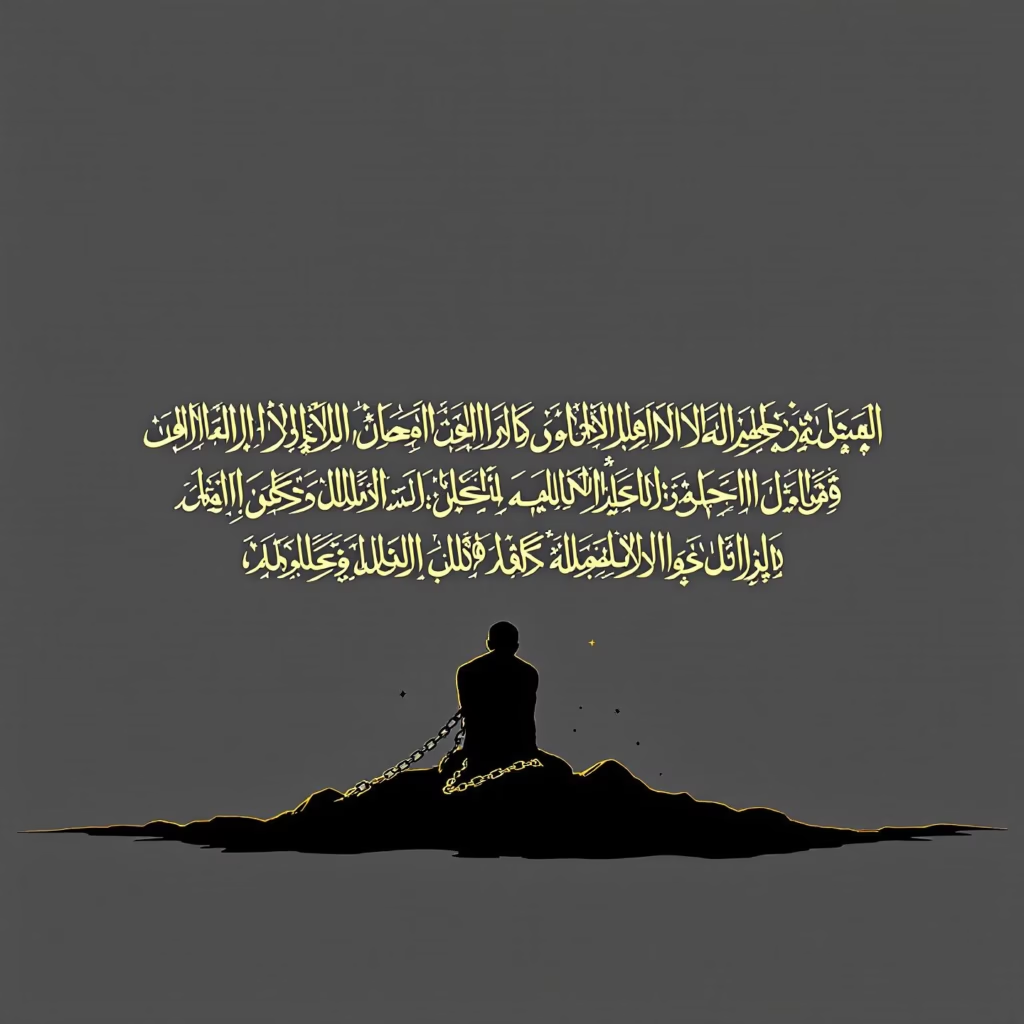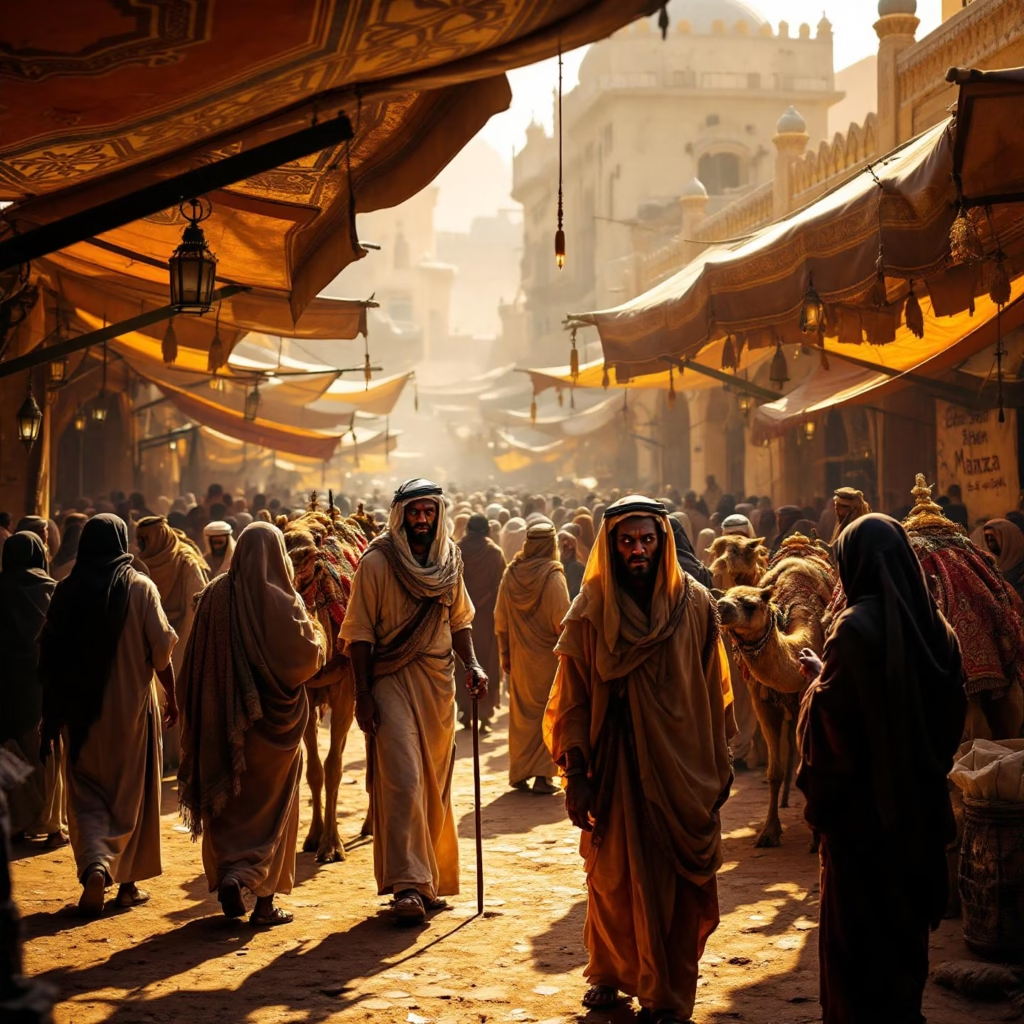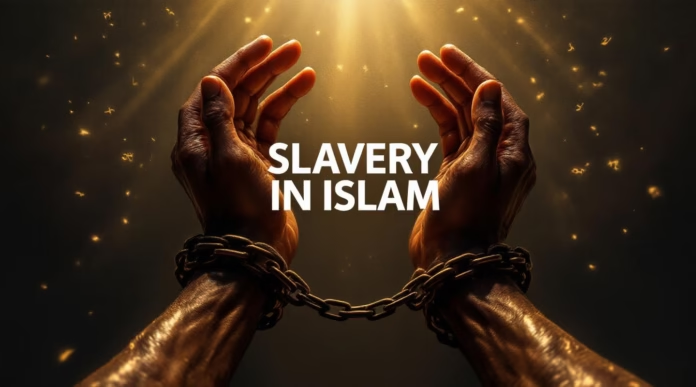Slavery in Islam
Slavery is one of those topics that most Muslims I knew growing up either avoided completely or brushed aside with excuses like “But Islam encouraged freeing slaves!” or “Slavery was everywhere back then.” It was only when I started reading the Quran and Hadith on my own, outside of the classroom or Friday sermons, that I realized this wasn’t just a footnote of history—it was built into the faith itself.
This blog isn’t about attacking Muslims. It’s about examining the scriptures honestly. For centuries, slavery was practiced in almost every culture, but the question is: If Islam is the final divine message, why didn’t it abolish slavery outright? Why does the Quran explicitly regulate, normalize, and even endorse it?
What I found shocked me. And I believe this is a conversation we need to have openly, especially in 2025 when human rights are universal but religious texts are still treated as untouchable.
Slavery Before and During Islam
Before Islam emerged in the 7th century, slavery was deeply rooted in Arabian society. Tribes raided one another, capturing women and children as slaves. Trade routes connected Arabia to massive slave markets in Africa, Byzantium, and Persia. In this context, Islam entered the scene—and rather than eradicating slavery, it codified it into religious law.
Muslim scholars themselves admit this. Ibn Khaldun, one of Islam’s greatest historians, wrote extensively about slavery being a natural part of society. Even the Prophet Muhammad himself owned, bought, and gifted slaves. One famous example is Zayd ibn Harithah, who was purchased and later freed, but only after years of being Muhammad’s servant.
This is critical to understand because some people claim, “Islam came to free slaves.” The reality is, while freeing slaves was considered a virtue, it was never made mandatory. Islam regulated slavery—but regulation is not abolition.
The Quran Verses That Shocked Me
When I first read the Quran cover to cover, these verses stood out. And they weren’t tucked away—they were crystal clear:
1. Surah Al-Mu’minun 23:5-6
“…those who guard their chastity, except from their wives or those their right hands possess…”
This verse explicitly allows men to have sexual relations with female slaves (“right hand possesses”), without requiring marriage. In modern terms, this is state-sanctioned sexual slavery. There’s no consent in slavery, yet this verse is often romanticized as part of Islam’s “mercy.”

2. Surah An-Nisa 4:24
“…except those whom your right hands possess…”
Again, captives of war could be taken as concubines. Muslim scholars throughout history used this as justification for rape of enslaved women.
3. Surah An-Nahl 16:71
“Allah has favored some of you over others in provision…”
While not explicitly about slavery, this verse was historically interpreted to justify hierarchy and servitude.
4. Surah An-Nur 24:33
“Do not compel your slave girls to prostitution if they desire chastity…”
Notice it says don’t force them into prostitution if they desire chastity—not that slavery is wrong. Instead, it assumes slavery exists.
5. Surah Muhammad 47:4
“…when you meet the disbelievers in battle, strike their necks… afterward either release them graciously or ransom them…”
Here, prisoners of war were not guaranteed freedom. Ransom or slavery were both sanctioned options.
When I first encountered these verses, I felt betrayed. In school, I was taught that Islam was “ahead of its time” in human rights. Yet, these verses show slavery was normalized by God Himself in the Quran.
Hadith That Paint an Even Darker Picture
The Hadith collections go even further. They don’t just mention slavery—they describe Muhammad buying, selling, and gifting slaves:
A man decided that a slave of his would be manumitted after his death and later on he was in need of money, so the Prophet (ﷺ) took the slave and said, “Who will buy this slave from me?” Nu’aim bin `Abdullah bought him for such and such price and the Prophet (ﷺ) gave him the slave.
There came a slave and pledg- ed allegiance to Allah’s Apostle (ﷺ) on migration; he (the Holy Prophet) did not know that he was a slave. Then there came his master and demanded him back, whereupon Allah’s Apostle (ﷺ) said: Sell him to me. And he bought him for two black slaves, and he did not afterwards take allegiance from anyone until he had asked him whether he was a slave (or a free man)
Even punishment for slaves was codified: beating was allowed, but not excessively. The fact that Islam needed rules about beating humans says it all.

How Slavery Survived in Muslim Societies
Apologists often argue: “Slavery existed everywhere! Islam was more humane!” But let’s be honest: Islam didn’t end slavery, it extended its shelf life.
- The Arab slave trade predated and outlasted the transatlantic slave trade.
- In the Ottoman Empire, eunuchs and concubines were staples of royal courts.
- Slavery in Saudi Arabia wasn’t abolished until 1962, under Western pressure.
- Even today, Mauritania struggles with slavery, and many Islamic scholars historically supported it based on scripture.
Islam didn’t free slaves; it systematized their existence.

The Modern Muslim Apologetic Response
I’ve debated with many Muslims who say:
- “Islam encouraged freeing slaves.”
- “Slavery was better under Islam than anywhere else.”
- “Times were different back then.”
Sure, times were different. But this isn’t about the 7th century. This is about a religion that claims its scripture is eternal and perfect. If it’s timeless, why didn’t it clearly ban slavery? Why didn’t Muhammad set a precedent of total emancipation?
A divine revelation should transcend time. Instead, it reflects the power dynamics of its era.
Why This Topic is Avoided in Mosques
Growing up, slavery in Islam was always sugar-coated:
- Bilal, the Ethiopian slave who became a beloved companion of Muhammad, was presented as proof of Islam’s equality.
- Verses about freeing slaves were framed as “revolutionary.”
But no one ever pointed out that Muhammad himself owned Bilal before freeing him.
There’s a reason this is never openly discussed:
- It undermines the claim of Islam’s moral superiority.
- It makes Muhammad look like a man of his time, not a prophet of God.
- It reveals that “divine law” often meant “legalized oppression.”
My Personal Reflection
Reading these verses and hadiths was a turning point in my journey out of Islam. I had been taught that Islam was a religion of justice and freedom, but these texts showed me something else entirely: a faith rooted in control, hierarchy, and ownership of human beings.
Some readers might argue, “But Christians had slavery too!” True. But Christianity doesn’t claim that its book is perfect and unchangeable law for all time. Islam does. That’s a massive difference.

Why This Matters in 2025
Even though slavery has been outlawed, the mindset persists. Countries like Iran, Saudi Arabia, and Mauritania still enforce laws based on interpretations of Sharia, which historically allowed slavery. ISIS even revived slavery in recent years, using these exact Quran verses as justification.
This isn’t just about history—it’s about how scripture is used today. Until Muslims confront these verses honestly, cycles of abuse and oppression will continue.
Final Thoughts
Slavery in Islam is one of the clearest examples of how religion can be used to normalize injustice. While many Muslims today reject slavery morally, their holy texts do not. This disconnect is one of the many reasons I left Islam.
If God truly authored the Quran, why didn’t He clearly say: “No human shall own another”? That would’ve been revolutionary. Instead, we have a book that regulated a system of bondage and a prophet who practiced it.
It’s time to question—not out of hate, but out of a genuine pursuit of truth.
IF you want to know about my story click here

